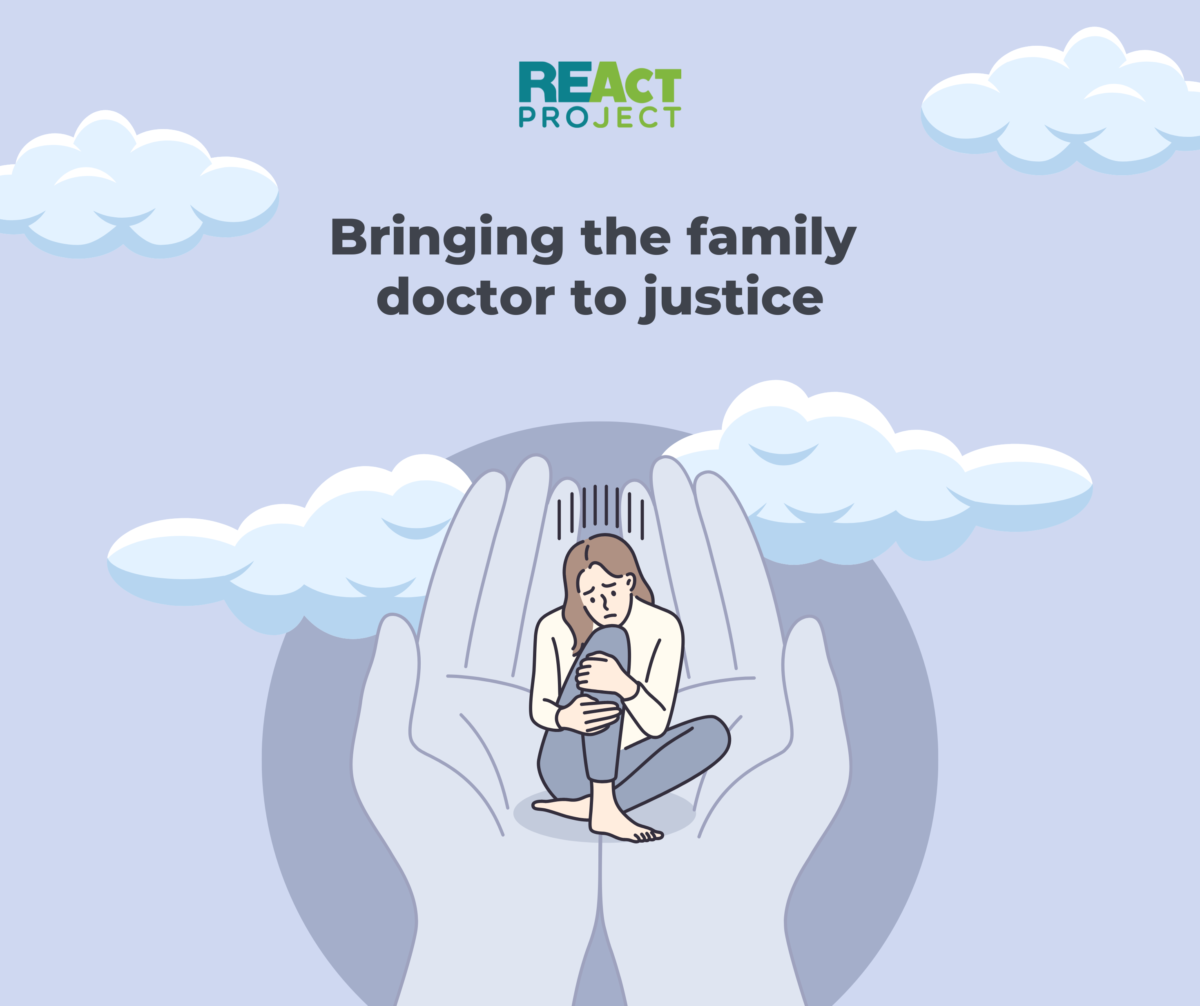Yulia is an HIV-positive woman who has a family and a full-time job in the public sector. When signing her general medical services contract (the Healthcare Services Declaration Form) with her family doctor, the client made a special point of stressing the confidential nature of her medical records and the need for keeping her HIV status undisclosed.
However, in a private conversation with another client, Yulia’s mother, the family doctor informed her about her daughter’s HIV-positive status. From that point on, the girl’s life turned into a “living hell on Earth” – she was completely cut off from her family and her own child, made to use separate dishes and bedding, nor was she even allowed near her child for a hug or a kiss. She was constantly humiliated and abused, with the other family members shaming her and lashing out at her over the HIV status non-stop.
Yulia decided to contact the REActor in a face-to-face setting to find out what remedies are available against this doctor for breach of confidentiality, as well as to get advice on how to improve her life and her relationships with family members.
During her appointment with the REActor, the girl was provided with counseling and information explaining her rights and responsibilities as an HIV-infected person. The REActor clarified for her the meaning of the terms “stigma” and “discrimination”, the liability for allowing those to happen, and for the disclosure of confidential health information, as well as laid out the possible options for addressing these issues. On behalf of the client, the REActor drafted a letter of complaint to the head of the primary care facility involved, describing the family physician’s unethical behavior and its implications for the victim’s family life.
As a result of the investigation into the complaint, the administration of the medical facility sided with the client and officially reprimanded the family physician, having her apologize for her unprofessional conduct. Apart from that, the administration of that medical center suggested that Yulia choose another doctor from among the pool of its specialists, but the girl refused and transferred to another primary care provider.
The REActor also offered to meet and communicate personally with her mother and relatives, as well as to provide consults involving the social workers from the AIDS Center to share objective and accurate information about HIV infection, along with specific lifestyle and treatment advice and guidance for HIV-infected people. But Yulia said she would take things from there and try her best to straighten out her family situation without any outside help.


